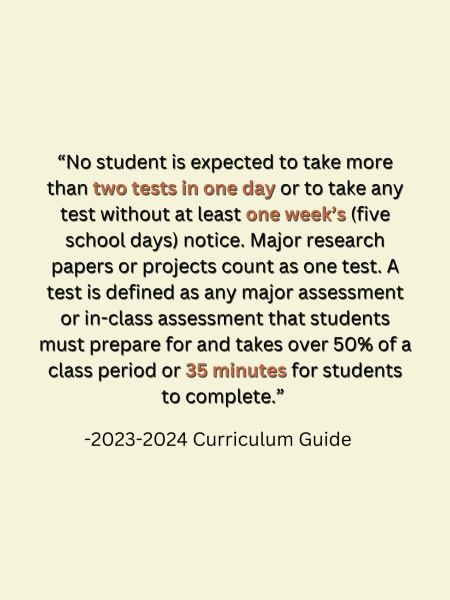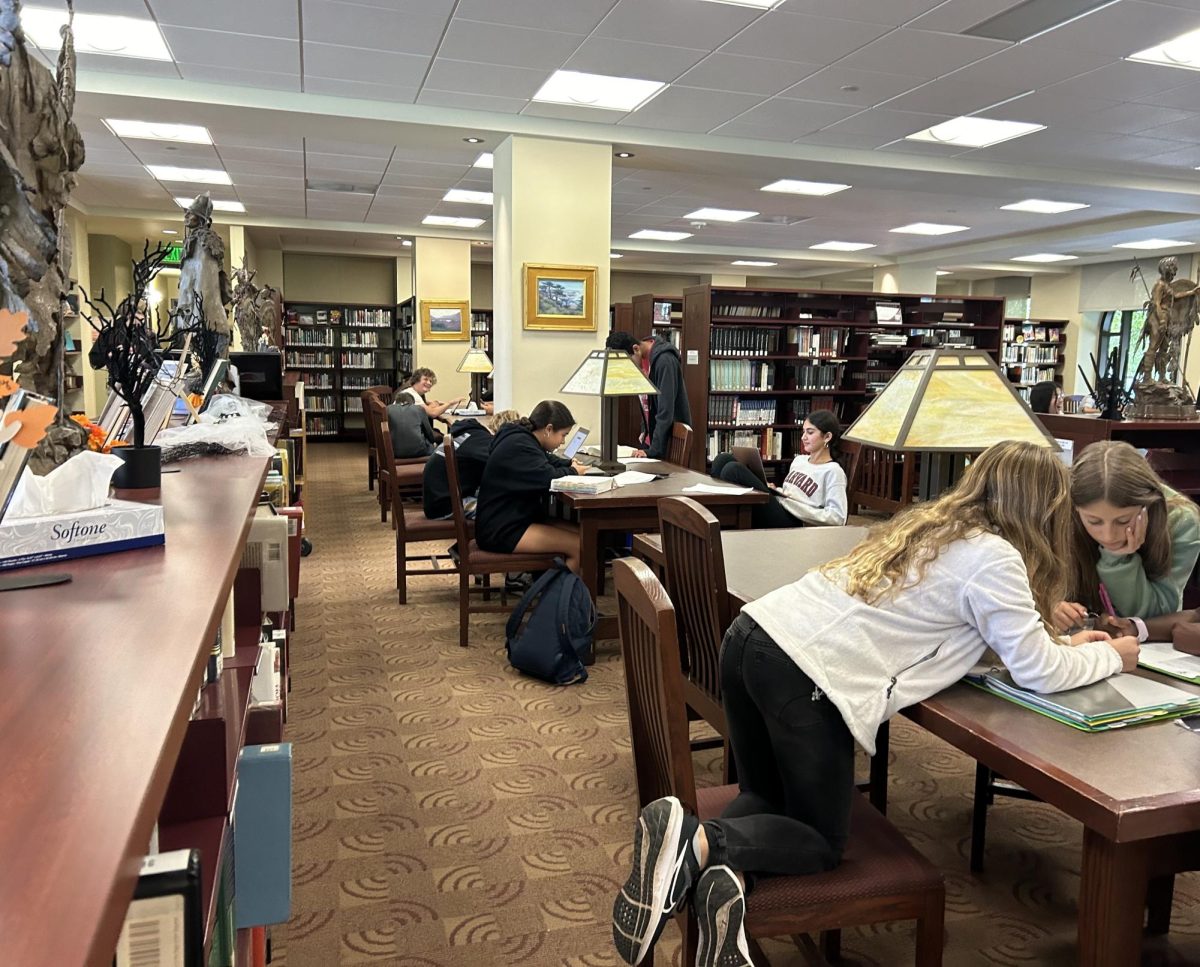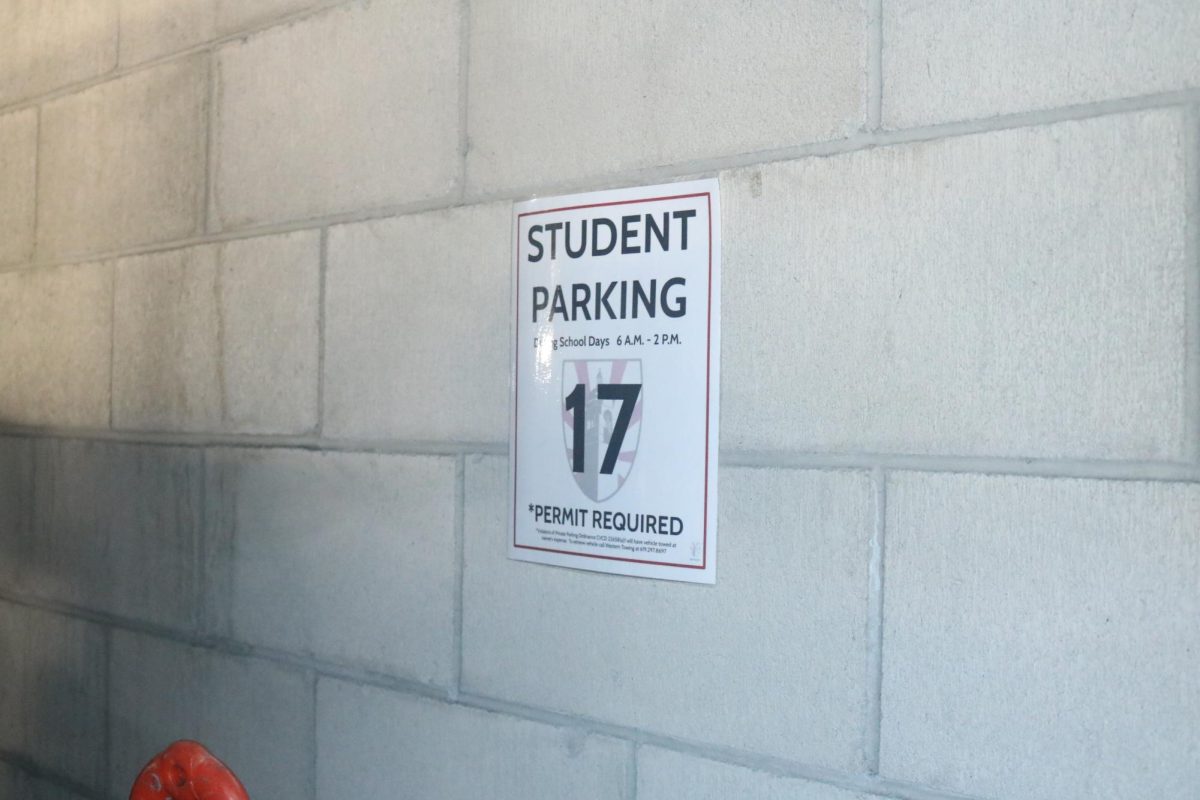As the first quarter of the 2023-24 school year finished, many students felt overwhelmed with their assessments before midterm grades were submitted. And especially in the week leading up to midterm break, students could be heard complaining about having multiple assessments in one day.
Fortunately, during cumulative week at the end of each semester, there is a set schedule to avoid this problem. But what are the rules about test scheduling during the rest of the year?

While this rule ensures that students have enough time to prepare for their exams and that they do not all land on one day, Assistant Head of School for Adolescent Learning & Development Ms. Janice Murabayashi emphasized that it is not the teachers’ responsibility to work with other teachers on this; rather, that it is the student’s job to check their assessments well ahead of time, and to communicate with their teachers. She said, “Ideally as soon as a student notices, ‘Oh wow, I have three major writing assignments due on the same day, or tests on the same day,’ they act on it right away… that gives them and the teachers time to figure out which is the one that can be shifted, and come up with a plan that helps support the students’ ability to manage everything.”
Despite the rules that are meant to prevent too much stress and too many assessments in a small time frame, Marly Berlin (‘26) said that in the past two weeks, she had “many, many, many tests and quizzes.” She added that, while the intention of spacing out exams by holding them the second-to-last week of the quarter, rather than the final week, was honorable, “it turned out that a lot of my teachers did them [then], which was stressful.”
Marina Khoury (‘24) said, “I would say that I had a lot of assessments last week and the week before.” She added that, with needing to study for all of her exams, “I didn’t really have time to manage my stress then, so I mostly just tried to work on assignments as early as possible, and I greatly looked forward to the long weekend.”
When teachers schedule exams, though they understand that students have assessments in other classes, it is difficult to coordinate exams between departments. With a wide variety of electives to choose from, peoples’ schedules can vary significantly. Modern World History teacher Ms. Anne Fierberg said, “We schedule tests as a teaching team. So the Modern World History teachers will talk to each other about when tests will be scheduled. We do not talk to other departments, and that’s mostly because there’s not a convenient time when we can talk to them.”
To account for this issue, Ms. Murabayashi said, “There has been talk of what we call a test calendar, mainly for the teachers to be aware of what other teachers are planning and doing. That can be helpful.” She added that, while it does seem like a viable option, there is no simple solution to fix everything. She said, “[A test calendar] doesn’t automatically solve the problem, especially at a school like Bishop’s where you have a lot of students wanting access to not just a standard cookie cutter combination of classes.” She added that “There’s room for improvement and a willingness on the adult side of things to continue to work on this issue and try to figure out ways to make it as humane for students as possible.”
Ms. Fierberg added, “I do think [a test calendar] would be helpful, especially for 9th grade classes, where most of those students are enrolled in the same courses. I think it becomes more difficult in later grades, especially when you’re choosing electives and you may have one class that has a test and one student has no other test, but three other students have tests that day in other courses.”








